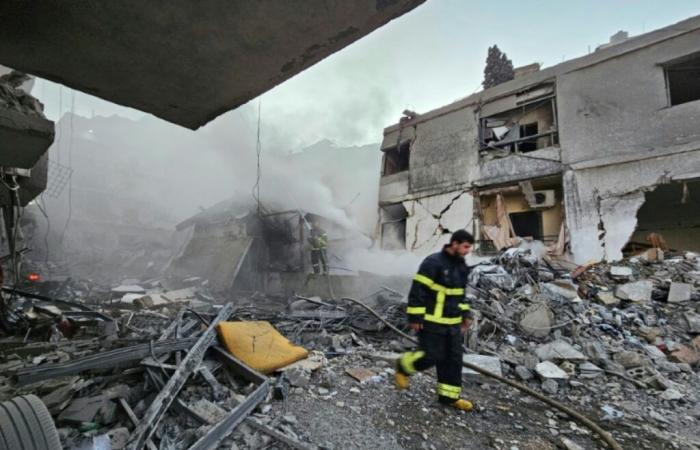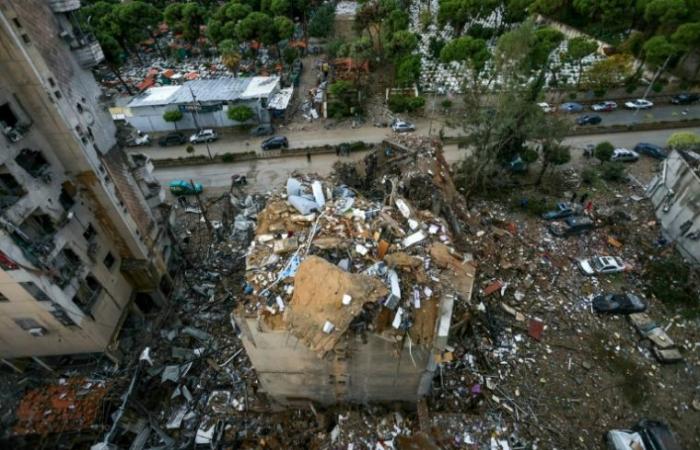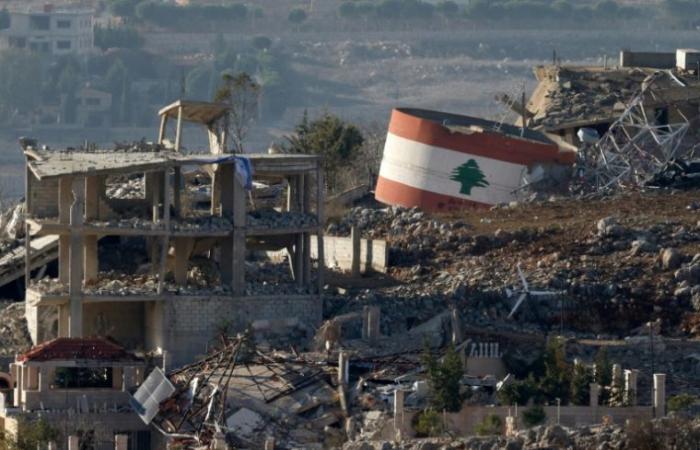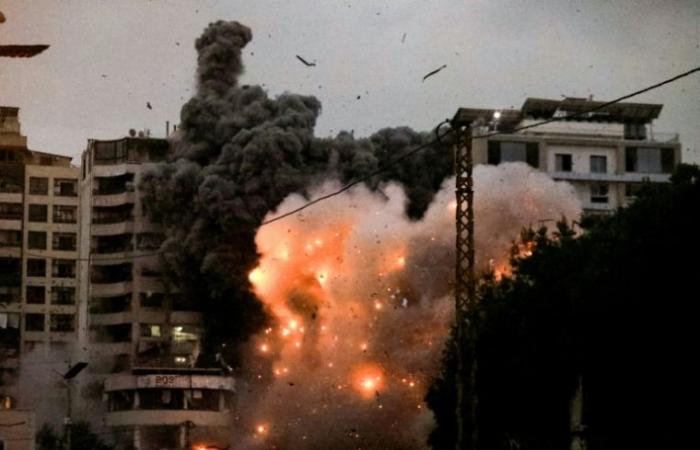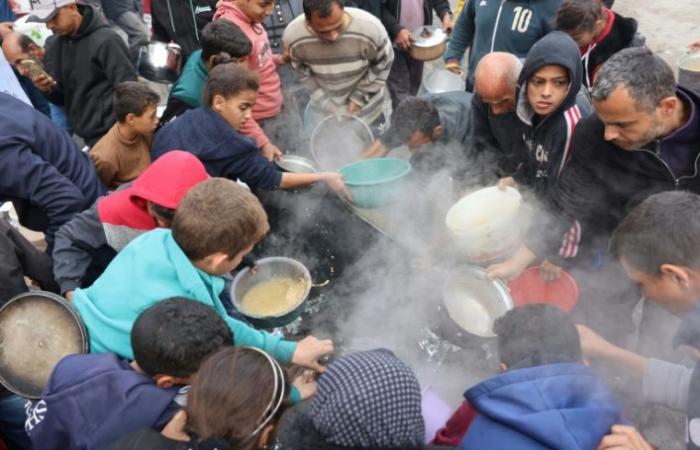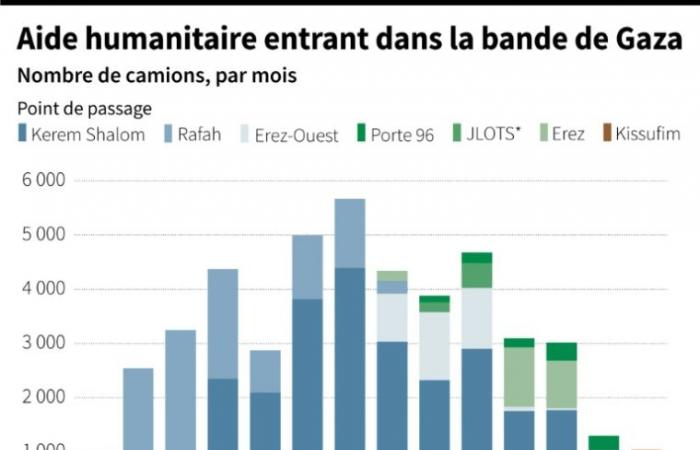A firefighter at the site of an Israeli bombing in the southern suburbs of Beirut on November 26, 2024 (AFP / -)
Israeli Prime Minister Benjamin Netanyahu announced that his country was preparing to approve a ceasefire with Lebanese Hezbollah on Tuesday evening, in order to increase its pressure on its sworn enemies, Iran and Palestinian Hamas.
The truce, for which the United States and France had been working for weeks, must put an end to more than a year of cross-border hostilities and two months of open war between Israel and the powerful Lebanese formation armed and supported by Tehran.
“This evening, I will present to the cabinet for approval a draft ceasefire in Lebanon”, the “duration (…) of which depends on what happens in Lebanon”, declared Mr. Netanyahu. “In full agreement with the United States, we maintain complete freedom of military action” in Lebanon, he added: “If Hezbollah violates the agreement and tries to rearm, we will attack.”
A truce in Lebanon will allow Israel to “focus on the Iranian threat”, and to “intensify” its pressure on Palestinian Hamas, against whom it is leading a deadly offensive in the Gaza Strip in retaliation for its unprecedented attack on Israeli soil on October 7, 2023, he said, after a meeting of the security cabinet.
Lebanese Prime Minister Najib Mikati called on the international community to “act quickly” for “immediate implementation of a ceasefire” after this announcement.
It comes as Israel on Tuesday shelled the center of Beirut and its southern suburbs, a stronghold of Hezbollah, like never before since it launched a massive bombing campaign on September 23 targeting the movement in the neighboring country, then began ground operations in the south on September 30.
Shortly after Mr. Netanyahu’s statement, another strike targeted a building in the shopping district of Hamra, in the heart of Beirut, noted an AFP journalist.
– “Plus d’excuses” –
Destructions in the southern suburbs of Beirut after an Israeli strike, November 26, 2024 (AFP / IBRAHIM AMRO)
A ceasefire in Lebanon should help end the conflict in Gaza, US Secretary of State Antony Blinken said earlier.
Israel is under international pressure to accept a deal. The G7 called on Tuesday for an “immediate ceasefire”, while the head of diplomacy of the European Union, Josep Borrell, judged that the Israeli government had “no more excuses” to refuse it.
According to the American news site Axios, the American project negotiated in recent days provides for a 60-day truce during which Hezbollah and the Israeli army would withdraw from southern Lebanon to allow the Lebanese army to deploy there.
The plan includes the establishment of an international committee to monitor its implementation, Axios added, specifying that the United States would have given assurances of its support for Israeli military action in the event of hostile acts by Hezbollah.
International diplomacy has relied on UN Security Council Resolution 1701 which ended the previous war between Israel and Hezbollah in 2006, and stipulates that only the Lebanese army and peacekeepers can be deployed on the southern border of Lebanon.
A figure among the Netanyahu government’s far-right allies, National Security Minister Itamar Ben Gvir, estimated on Monday that a ceasefire would be “a big mistake”.
– “Take revenge on the Lebanese” –

Photo taken from northern Israel shows an Israeli flag and a Lebanese flag flying over the ruins in the village of Meiss El-Jabal, southern Lebanon, on November 25, 2024 (AFP/Jalaa MAREY)
Israel increased its aerial bombardments on Tuesday in the center of the Lebanese capital – where at least ten people were killed according to the Lebanese authorities – and its southern suburbs, after calls to evacuate.
A Hezbollah MP, Amin Cherri, accused Israel of wanting to “take revenge on the Lebanese”.
According to the Israeli army, more than 20 projectiles were fired from Lebanon against Israel during the day.
The war that has raged since October 2023 in the Gaza Strip between Israel and Hamas has spread to Lebanon after a year of exchanges of fire on both sides of the Israeli-Lebanese border.
Israel claims to want to neutralize Hezbollah in southern Lebanon, which opened a front against it on October 8, 2023 in support of Hamas, to allow the return of some 60,000 inhabitants of the north driven out by its fire.
According to the Lebanese Ministry of Health, nearly 3,800 people have been killed in Lebanon since October 2023, most of them since September. The hostilities have displaced some 900,000 people, according to the UN.
On the Israeli side, 82 soldiers and 47 civilians were killed in 13 months.
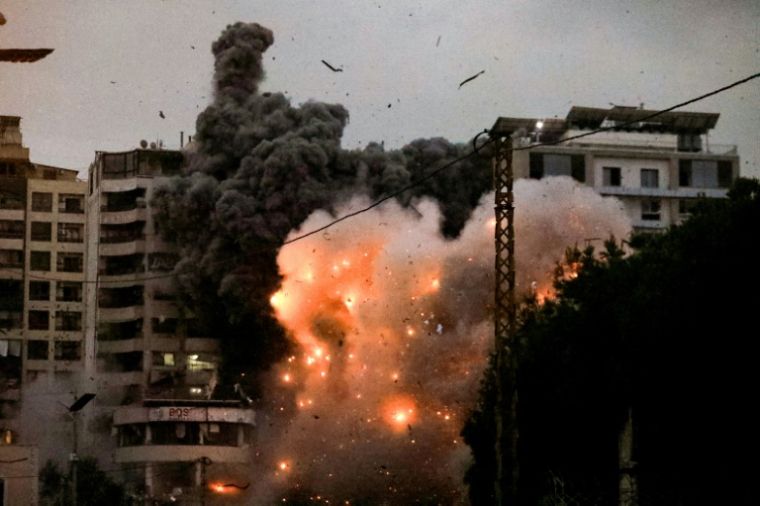
Israeli bombing on the southern suburbs of Beirut, November 25, 2024 (AFP / -)
Earlier in the day, residents of northern Israel interviewed by AFP said they were opposed to a ceasefire: “it would be a serious error until Hezbollah has been completely eliminated”, judged. Maryam Younnes, a 29-year-old student.
– 22 dead in Gaza –
The Israeli army continues its strikes on the besieged Gaza Strip, where at least 22 people were killed on Tuesday, according to Civil Defense, and where thousands of displaced people are trying to protect themselves from the rain and cold.
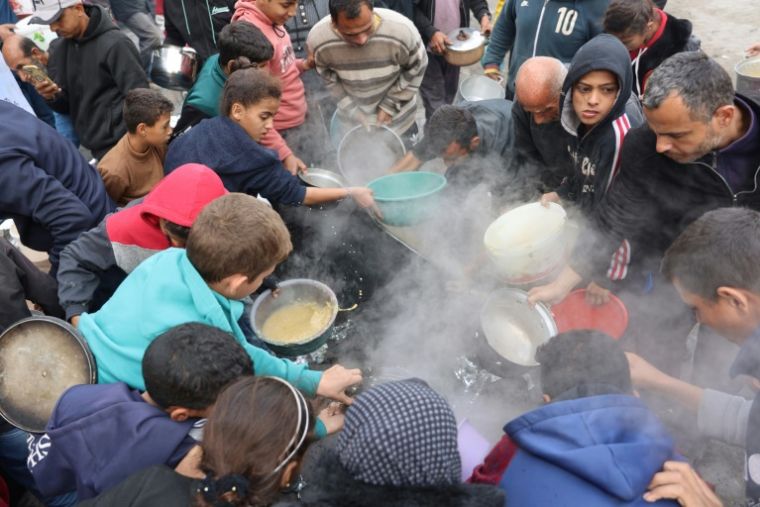
Palestinians wait to receive a food ration in front of a distribution center near Gaza City, November 25, 2024 (AFP / Omar AL-QATTAA)
The winter is going to be “horrible”, warned Louise Wateridge, a spokesperson for the United Nations agency for Palestinian refugees (UNRWA), while the Gazans have “for 13 months: neither food nor water , nor shelter”.
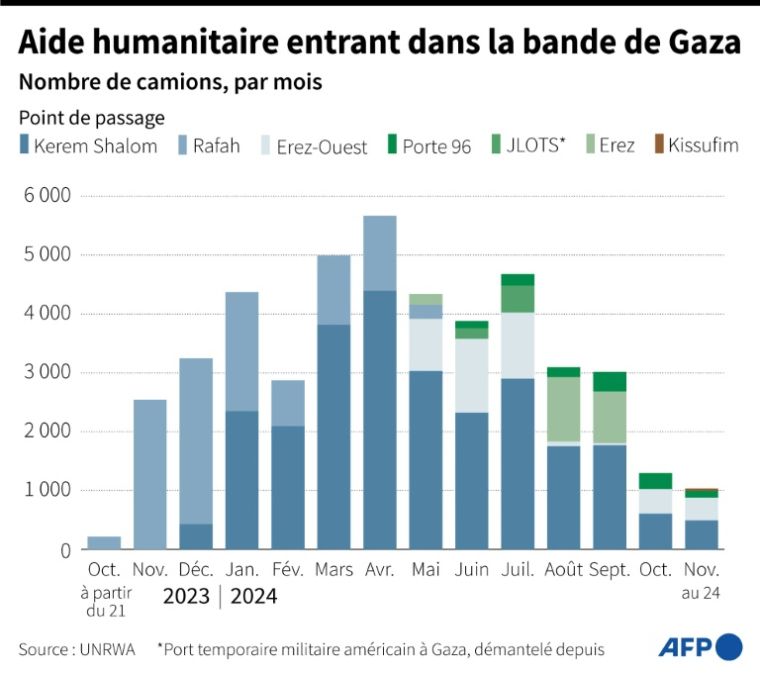
Chart showing the number of humanitarian aid trucks entering the Gaza Strip since October 21, 2023, according to UNRWA data (AFP/Omar KAMAL)
The war was sparked by the Hamas attack, which led to the death of 1,207 people on the Israeli side, mostly civilians, according to an AFP count based on official data, including hostages killed or died in captivity.
The Israeli offensive carried out in retaliation in Gaza left at least 44,249 dead, the majority civilians, according to data from the Hamas Ministry of Health, deemed reliable by the UN.

